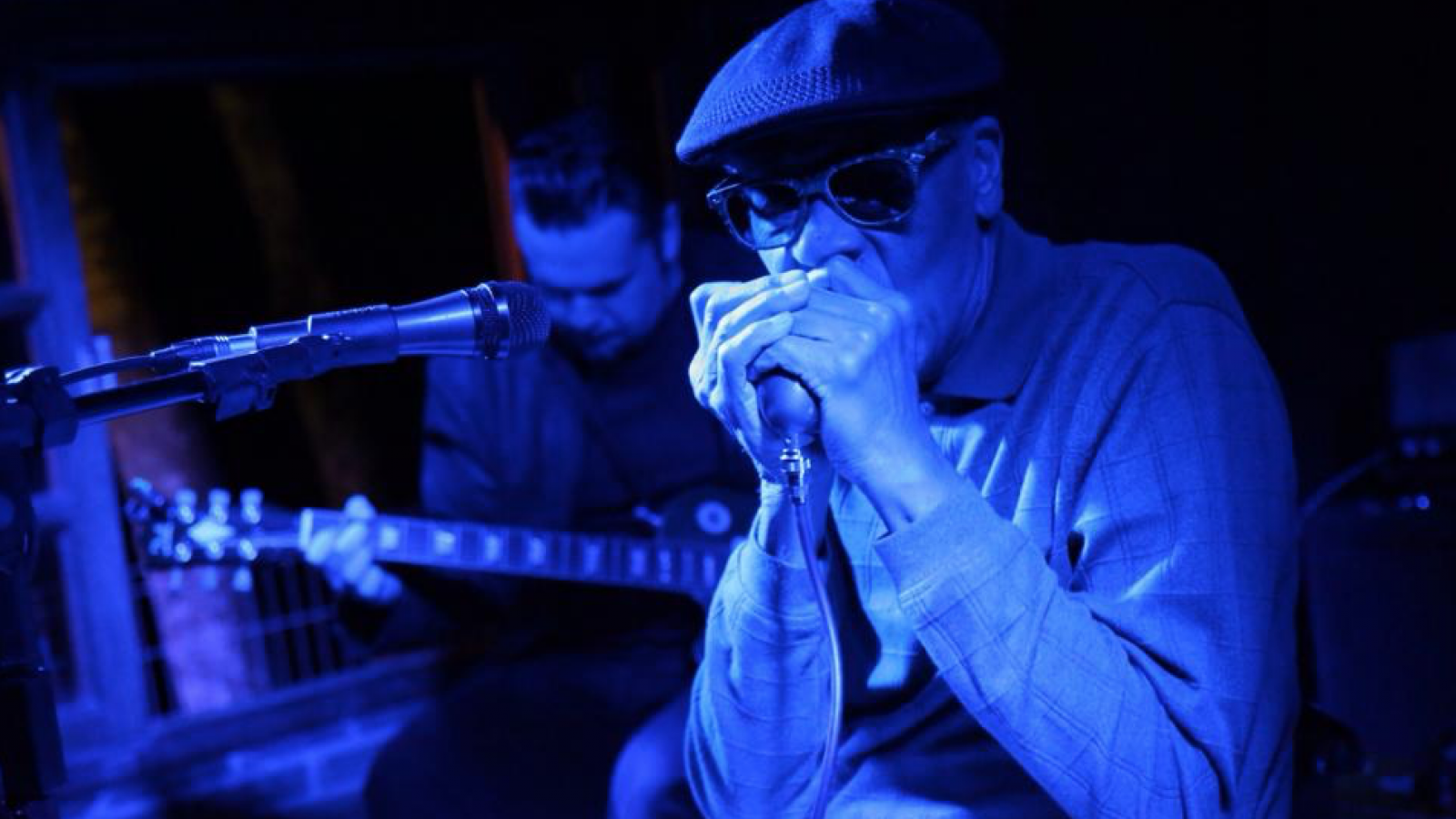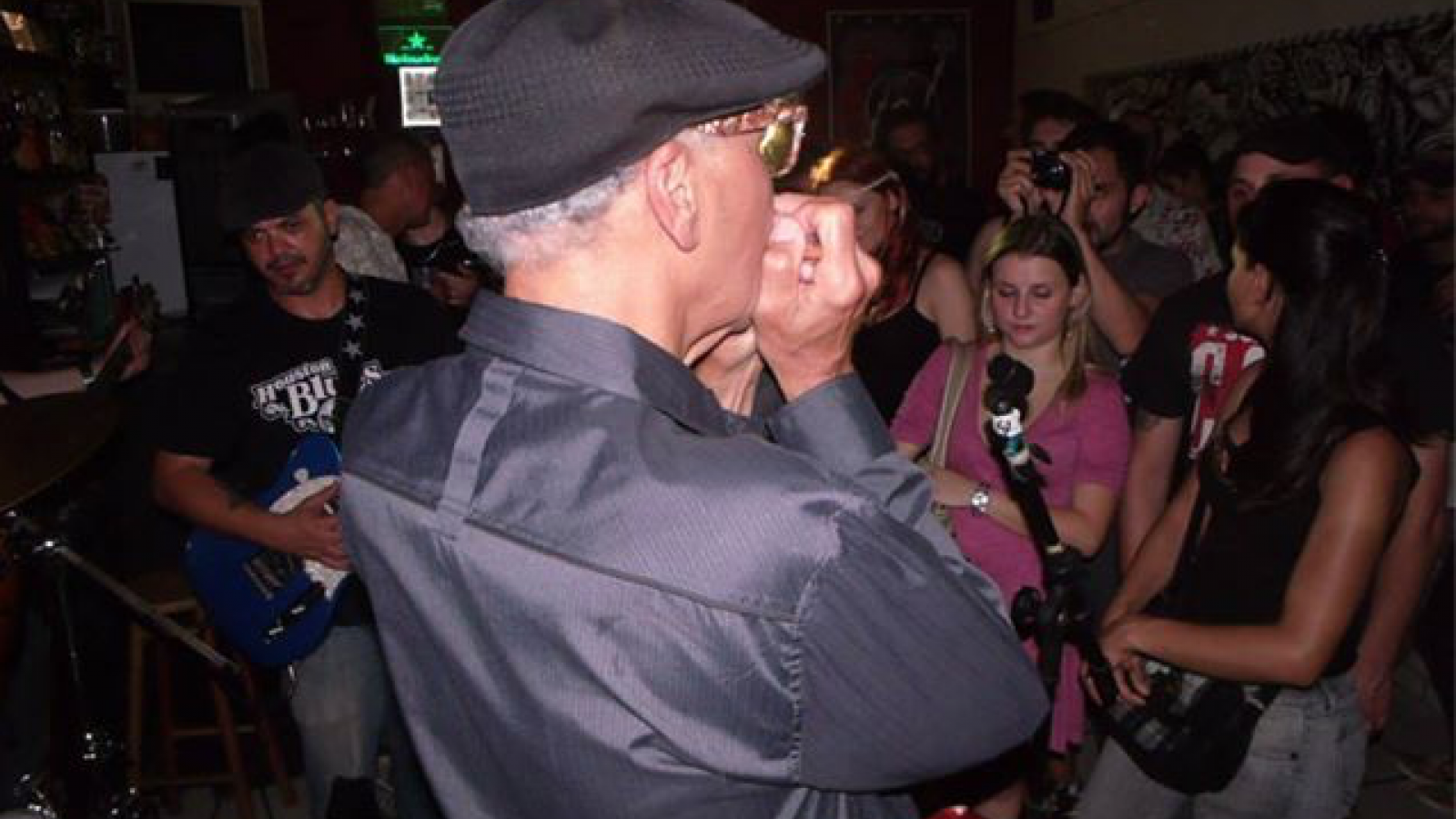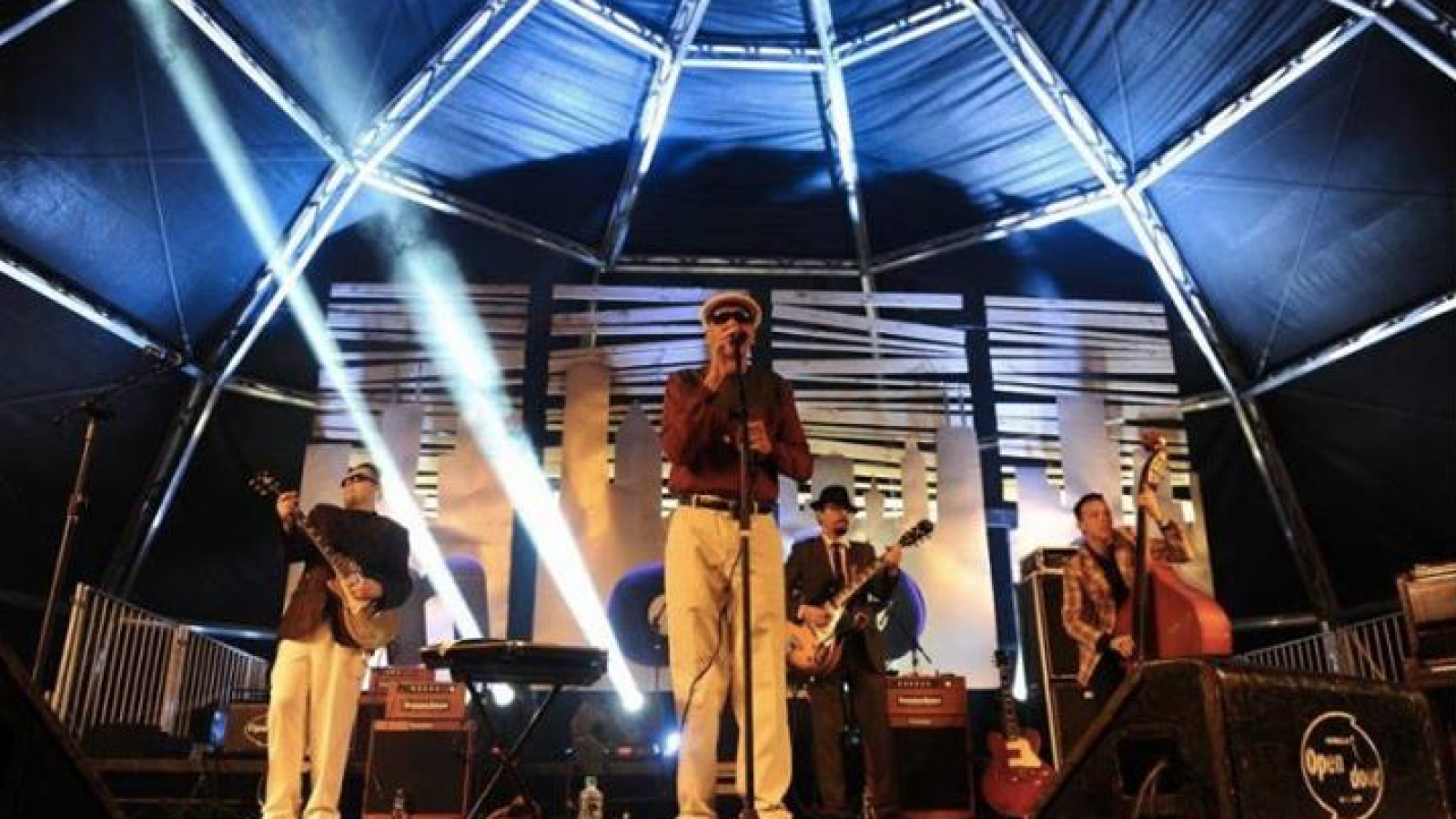Wallace Coleman
"Well, I—I used to listen at the radio quite a bit… the Lone Ranger and all of that. And… and I was dialing the radio and I accidentally dialed WLAC out of Nashville and I heard this sound (DEMONSTRATES) and I didn’t know what it was. And when they got through with the song, this guy, his name… this ol’ John Richburg down here at WLAC Nashville that was Little Walter and his big harmonica. And I said, wow, that was a harmonica? And then he played something by Muddy Waters and then… then he played something by somebody playing a harmonica. And I just got go I said, man I’ve never heard a harmonica played like that because we… we called ‘em French harps where I come from. And… and you could take ‘em and do the chicken sound like in a barnyard and a train whistle, but I never heard it played like that. And I just kept listening and listening. Every night I just turned back to that station to see if I could hear that again. And sure enough they… that’s where I got hooked out on WLAC, Nashville, Tennessee."
Born in 1936 in Morristown, Tennessee, Wallace Coleman was drawn to blues music while listening to WLAC out of Nashville. Fascinated by the new, unique sound of the harmonica, Coleman decided to teach himself the instrument. Shortly afterwards, he acquired his own harmonica and developed his talents using Wayne Raney's harmonica book. Over the years, he taught himself to play the harmonica. After moving to Cleaveland, he began working at a bakery and practicing music on the side. He began performing in public nearly 30 years after moving to Cleaveland in 1985. Coleman eventually joined blues guitarist Robert Jr. Lockwood in 1987 before beginning his solo career in 1997. Lockwood asked Coleman to join his band after hearing him play at the Cascade Lounge. Although Coleman still wanted to finish his final two years at the bakery, Lockwood told him to call once he did. At age 51, Coleman began touring with Lockwood throughout the United States and abroad. The musical historian Larry Nager describes Coleman as "the last of the original guys, he's not a revivalist." With his traditional blues style, Coleman's four albums have received critical acclaim and he is remembered as one of the great postwar Chicago blues harmonica players.
Wallace Coleman's Traditions episode.
"Bluesman Wallance Coleman keeps an eye on the future while preserving the past"
Contents of Collection
- Recordings such as "Bricks in my Pillow" and "Mean Black Spider"
- Live performances
- Images of Wayne Raney harmonica book; stage performances featuring Igor Prado, Danilo Simi, and other musicians



